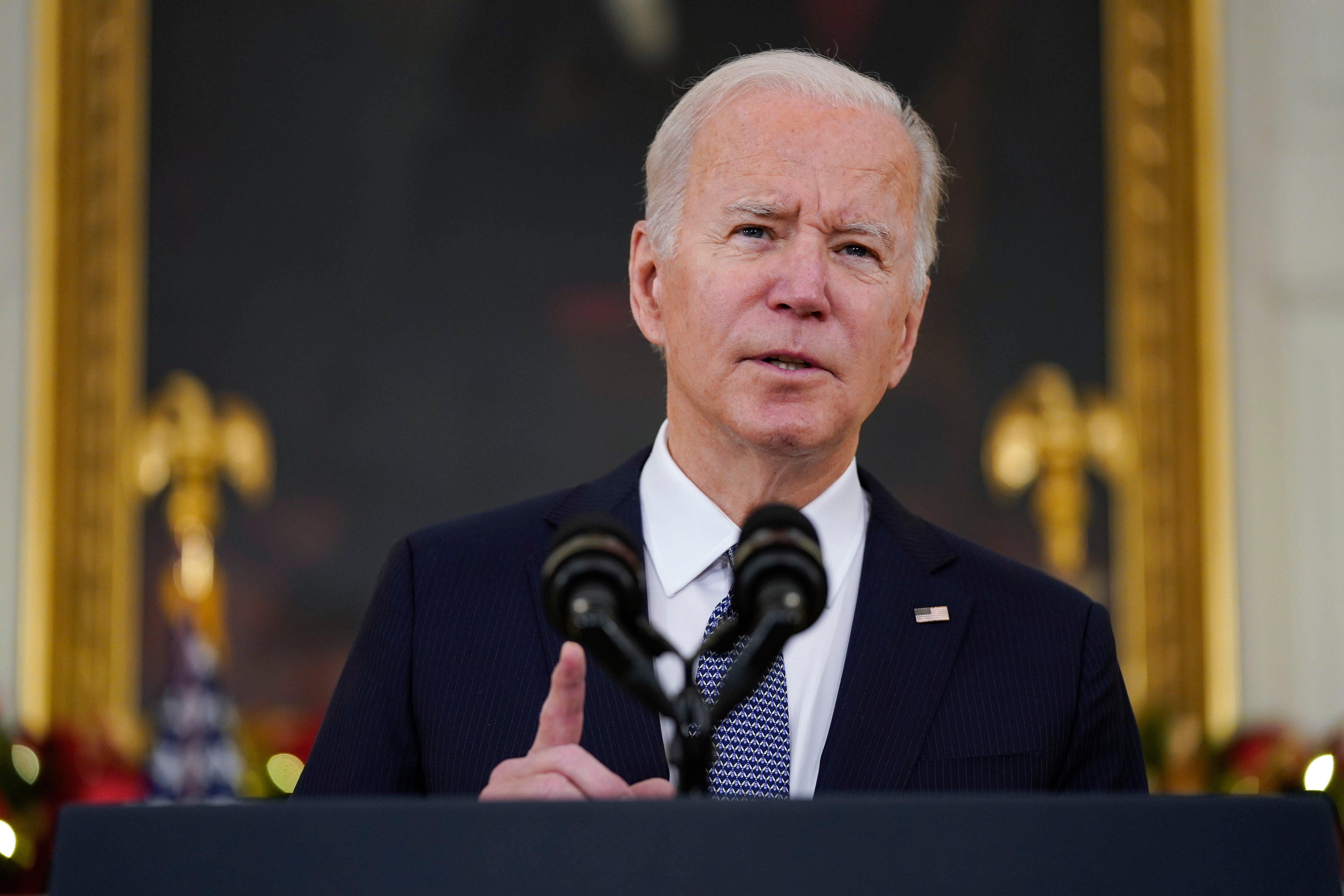White House confirms full boycott of Beijing Olympics despite China threat of ‘firm countermeasures’
The Biden administration’s pullout is meant to send a message to China on the international stage without restricting the participation of US athletes

Your support helps us to tell the story
This election is still a dead heat, according to most polls. In a fight with such wafer-thin margins, we need reporters on the ground talking to the people Trump and Harris are courting. Your support allows us to keep sending journalists to the story.
The Independent is trusted by 27 million Americans from across the entire political spectrum every month. Unlike many other quality news outlets, we choose not to lock you out of our reporting and analysis with paywalls. But quality journalism must still be paid for.
Help us keep bring these critical stories to light. Your support makes all the difference.
Joining a global chorus of calls for a diplomatic boycott of the 2022 Winter Olympics in Beijing, the Biden administration announced on Monday that no US government officials will be attending the global sporting event to be held in China in February, it has been reported.
The pullout is intended to send a message to China on the international stage without restricting the participation of US athletes. The move was announced by White House press secretary Jen Psaki.
“The Biden administration will not send any diplomatic or official representation to the 2022 Winter Olympics and Paralympic Games, given [China’s] ongoing genocide and crimes against humanity in Xinjiang, and other human rights abuses,” said Ms Psaki. She added: “The athletes on Team USA have our full support.”
Responding sharply to the US’s anticipated decision, China accused Washington politicians of grandstanding over the controversy and threatened to invoke “firm countermeasures”, without sharing further details of its retaliation.
Calling the move an “outright political provocation”, foreign ministry spokesperson Zhao Lijian said: “Without being invited, American politicians keep hyping the so-called diplomatic boycott of the Beijing Winter Olympics, which is purely wishful thinking and grandstanding.
“If the US side is bent on going its own way, China will take firm countermeasures.”
It comes amid calls for a diplomatic boycott by several western nations, including the UK and Australia, in protest against Chinese human rights violations.
Shortly after a call with his Chinese counterpart Xi Jinping, US president Joe Biden had indicated in November that he might be considering a diplomatic boycott of the games.
“President Biden raised concerns about the [People’s Republic of China’s] practices in Xinjiang, Tibet, and Hong Kong, as well as human rights more broadly,” according to the White House readout.
A formal recommendation of a diplomatic boycott of the games was also made to President Biden last month, which he had been expected to approve before the end of November.
This will be the second boycott of the Olympics by the US in 41 years, with the previous one being called under President Jimmy Carter’s administration in 1980.
The Biden administration had been under mounting pressure from activists and members of congress to withdraw officials’ participation in the games.
Pointing to China’s human rights record in May this year, house speaker Nancy Pelosi had also called for the diplomatic boycott without punishing athletes at home.
The Biden administration has described the abuse of Uyghur Muslims in China’s Xinjiang province under Mr Xi as an ongoing “genocide”.
Activists said the games will take place in China amid “one of the world’s worst crackdowns against freedom, democracy and human rights”.
A coalition of at least 86 global human rights bodies have joined the “#NoBeijing2022” campaign, saying China’s “unrelenting crackdown across China, Tibet, East Turkestan, Southern Mongolia and Hong Kong has deepened under President Xi Jinping”.
The coalition has cited the detention of at least two million Uyghur Muslims in “re-education camps” and their subjection to torture, the occupation of Tibet, the implementation of a contentious new national security law in Hong Kong and the detention and disappearance of “countless Chinese lawyers, feminists and activists”.
It also pointed to human rights violations of southern Mongolians, the “intimidation and geopolitical bullying of Taiwan” and Beijing’s aggressive expansion in the South China Sea and at the India-Tibet border, representing a “clear threat to regional and global security”.
Subscribe to Independent Premium to bookmark this article
Want to bookmark your favourite articles and stories to read or reference later? Start your Independent Premium subscription today.
Join our commenting forum
Join thought-provoking conversations, follow other Independent readers and see their replies
Comments